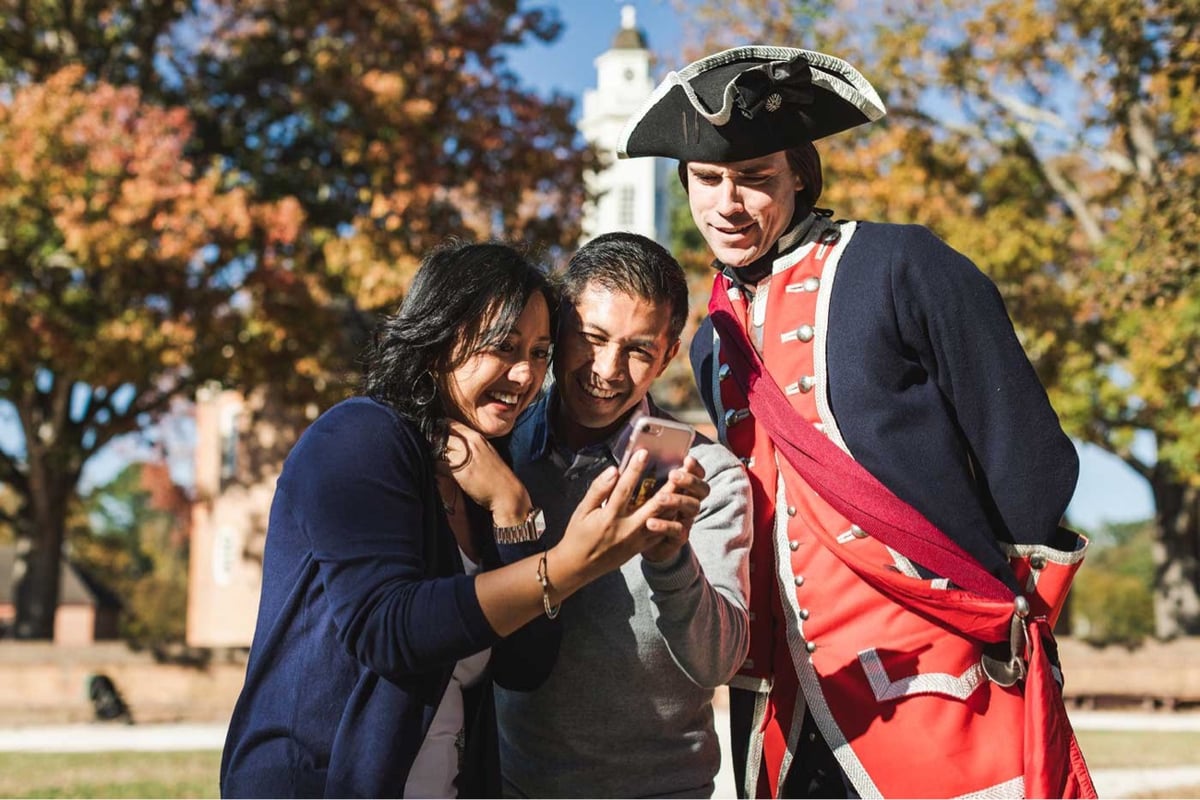Colonial Williamsburg, a Safe Space for Learning History

When you woke up this morning, you probably didn’t think the most interesting & thought-provoking thing you’d read today was about Colonial Williamsburg. Laura Jedeed’s piece for Politico, Where MAGA Granddads and Resistance Moms Go to Learn America’s Most Painful History Lessons, is about how folks at the living museum strive to accurately interpret the past while remaining accessible to those who might feel challenged by those truths.
In this excerpt, Jedeed describes how long-time museum interpreter Stephen Seals approaches portraying James Armistead Lafayette, an enslaved man who served as a spy for the American forces during the Revolution:
James Armistead Lafayette’s story encapsulates the paradox at the heart of America’s founding; enslavers who founded a nation to preserve liberty from tyrants. “To get a guest to understand that — to many of them it completely destroys their self-worth,” Seals said. “My job is to minimize their feelings of that destruction.”
That job can require a deft hand and emotional control, as when an older Southern man visiting Colonial Williamsburg with his granddaughter complained about what he saw as the museum’s hyperfocus on American chattel slavery when slavery has existed for millennia. “He’s like, ‘I’m kind of an expert in that sort of thing,’” Seals recalls. “My mind went, ding ding ding! Because that’s also something that I’ve read a lot about as well, which means I can have a conversation.” Seals asked the guest about the realities of enslavement in Greece and Rome, and how those institutions differed from slavery in Colonial America. The differences quickly became apparent. Classical slavery was not hereditary or explicitly based on theories of superior and inferior races, and enslaved people in Greece and Rome had many avenues to attain freedom and become full citizens.
“He actually said to me, ‘I never thought of it that way,’” Seals said. “I didn’t have to embarrass him in front of his granddaughter, which would have completely shut him down.”
In some ways, this was the exchange between two equals that it appeared to be on the surface. But Seals had to do most of the emotional and intellectual work to bridge that divide. At bottom, interpretation is a customer service job, and the power imbalance in favor of the guests is baked in. “Sometimes I’ve got to put myself to the side — actually, most of the time I have to put myself to the side — to think about where [the guests] are and what they need,” Seals remarked.
Read the whole thing, it’s interesting throughout.





Stay Connected